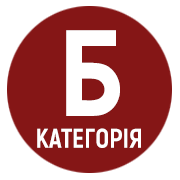INFORMATION-ANALYTICAL COMPETENCE OF FUTURE BACHELORS OF PRIMARY EDUCATION: CONCEPT, STRUCTURE, CONTENT
DOI:
https://doi.org/10.32782/2410-2075-2023-17.8Keywords:
information and analytical competence, competence-based approach, components of information and analytical competence, future bachelors of primary education.Abstract
Introduction. In the modern educational context, the concept of "information and analytical competence of future bachelors of primary school" is of particular importance, based on the role of the teacher as a guide in the world of information and knowledge. This competence covers the teacher's ability not only to collect and process information, but also to critically analyze, evaluate and interpret it in the context of the educational process. The importance of this competency lies in developing teachers' ability to understand and use information resources in a variety of formats, from traditional print materials to digital media. Purpose. Preparing primary school teachers with a high level of information and analytical competence is not only a necessity, but also a strategic goal of the modern educational system. This requires educational institutions not only to integrate relevant courses and trainings into the curriculum, but also to develop effective teaching methods that would contribute to the development of this competence. This includes emphasizing the development of critical thinking, analytical skills, data and information management, and the ability to use digital technologies to improve the efficiency of the learning process. At the same time, it is important to understand that information and analytical competence is not limited to knowledge and skills, but also includes the formation of a certain mentality aimed at continuous improvement, critical reflection on information and flexible response to changes in the modern educational and social environment. Methods. To achieve this goal, theoretical research methods were used: analysis, synthesis, comparison, generalization and deduction. Results. The analyzed discourse made it possible to outline our own definition of the information and analytical competence of future bachelors of primary education as an integral part of professional competence that integrates knowledge, skills, abilities and professionally relevant qualities necessary to search, systematize and analyze various types of information, present the processed information in an accessible format, identify patterns in a particular area and predict further development of the situation based on the identified patterns and other types of information. Originality. The article defines the information and analytical competence of future bachelors of primary education as a complex ability that combines a deep understanding and mastery of information resources, methods of their analysis, evaluation and use in the context of the educational process. This competence implies the ability of future primary school teachers not only to find and process relevant information, but also to critically analyze it, identify key ideas and conclusions, and effectively apply the data obtained for planning, implementing and evaluating the educational process. The following components are substantiated: information-motivational, information-cognitive, informationtechnological, innovation-analytical, and reflective. Conclusion. The prospects of the study are to develop the information-motivational, information-cognitive, information-technological, innovative-analytical and reflective components of information-analytical competence, as this involves not only providing teachers with access to various information resources, but also developing their critical analysis skills, innovative approach to the use of technology and the ability to self-analyze and improve themselves. Thus, the need for a comprehensive approach to the development of future teachers' professional competencies that meets the challenges of modern education is emphasized.
References
Гаврілова Л. Г., Топольник Я. В. Цифрова культура, цифрова грамотність, цифрова компетентність як сучасні освітні феномени. Інформаційні технології і засоби навчання. 2017. Т. 61. № 5. С. 1–14. DOI: https://doi.org/10.33407/itlt.v61i5.1744.
Дасюк Ж. М. Психологічний аналіз проблеми комунікативної компетентності у вітчизняній та зарубіжній науковій думці. Проблеми загальної та педагогічної психології . 2007. Т. IX. Ч. 4. С. 137–142.
Максимчук Л. В. Інформаційно-аналітична компетентність майбутніх фахівців у процесі вивчення іноземної мови. Вісник Національної академії Державної прикордонної служби України. 2019. Вип. 3. URL: http://nbuv.gov.ua/UJRN/Vnadped_2019_3_8.
Наливайко О. О. Цифрова компетентність: сутність поняття та динаміка його розвитку. Компетентнісний підхід у вищій школі: теорія та практика. 2021. С. 40–65. DOI: https://doi.org/10.26565/9789662856729.03.
Петренко Л. М. Теорія і практика розвитку інформаційно-аналітичної компетентності керівників професійно-технічних навчальних закладів : монографія. Дніпропетровськ, 2013. 456 с.
Прохорова С. М. Поняття цифрової компетентності вчителя іноземної мови у світовому освітньому просторі. Вісник Житомирського державного університету імені Івана Франка. Педагогічні науки. 2015. Вип. 4. С. 113–116. URL: http://nbuv.gov.ua/UJRN/VZhDUP_2015_4_24.
Савченко І. М., Ягупов В. В. Інформаційно-аналітична діяльність педагогічних працівників професійно-технічних навчальних закладів : термінологічний словник. Київ : ІПТО НАПН України, 2014. 127 с.
Сивак О. А., Станецька Ю. О. Формування фахових компетентностей у майбутніх документознавців. Педагогіка формування творчої особистості у вищій і загальноосвітній школах. 2019. Вип. 62. Т. 2. С. 168–172.
Ткаченко Є. Інформаційні компетентності фахівців у сучасному суспільстві. Освіта як чинник формування креативних компетентностей в умовах цифрового суспільства : матеріали міжнар. наук.- практ. конф. Запоріжжя, 2019. С. 171–174.
Чередніченко Г. А., Вікторова Л. В., Шапран Л. Ю., Куниця Л. І. Навчання професійного іншомовного спілкування студентів : монографія. Київ : Інкос-Видавництво, 2013. 464 с.
Ягупов В. В. Інформаційно-аналітична діяльність педагогічних працівників ПТНЗ: зміст і етапи. Модернізація професійної освіти і навчання. 2015. Вип. 6. С. 102–116.
Forest Woody Horton Jr. Understanding Information Literacy: A Primer. UNESCO. 2008. URL: https://unesdoc.unesco.org/ark:/ 48223/pf0000157020.
Krumsvik R. Situated learning and digital competence. Education and Information Technology. URL: http://www.icicte.org/Proceedings 2013/Papers%202013/05-1-Krumsvik.pdf.







